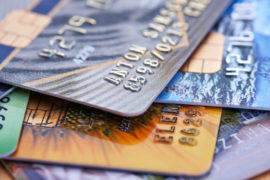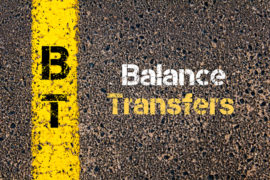Credit cards are a terrific invention that can be of great benefit to people who are struggling financially or who are in the midst of an emergency.
Banks and financial institutions in the United Arab Emirates have to document and evaluate the income of anyone who applies for a credit card before they can issue one.
This process requires applicants to submit a number of documents in order to prove their income, such as bank statements and salary slips.
Many people believe that anyone who is unemployed will not be able to get a credit card, but this is actually something of a misconception.
Despite the popular belief, UAE banks may still offer credit cards to those who are economically unproductive, such as students, retired professionals and homemakers.
Anyone who has been able to maintain a steady income flow with the use of investment schemes or tools such as bonds, stocks and mutual funds should have no problem getting a credit card in the UAE.
Applicants of this nature will just have to supply documents verifying their financial income to the financial institution concerned.
Credit cards are designed as financial tools for people who are in employment, according to standard guidelines.
However, those with other potential sources of income, including freelance payments and investments that offer a steady and regular income flow, will still be able to get a credit card.
Today, the great majority of banks in the UAE provide services that allow unemployed customers to apply for a credit card via their website.
After an online application has been filled out, the credit card applicant can then visit their closest branch with all of the mandatory documents to ensure that their application can be fully considered.
The potential to be able to repay credit card debt is the main factor looked at by banks and other such institutions when they decide whether or not to offer their customers credit cards.
A customer’s repayment potential has to be justified on paper before the credit card provider can process their application.
People who are unemployed can put in an application for a credit card in the UAE based on their other income sources.
People who have low-risk investments such as fixed deposits may also be able to get a secured credit card, which offers similar services to those provided by standard credit cards within the UAE.
The primary difference between secured credit cards and standard credit cards is that the former are issued against a customer’s fixed deposits.
Secured credit cards usually come with a credit limit that is around 80% of the deposit amount.
UAE secured credit cards help to prevent cardholders from becoming ensnared in debt traps and also come with more flexibility in comparison to the nation’s standard credit cards.
Add-on credit cards are supplementary cards issued under a primary UAE credit card, and can be helpful for those who cannot otherwise get a credit card but are allowed them by a primary cardholder, who is usually a close relation.




